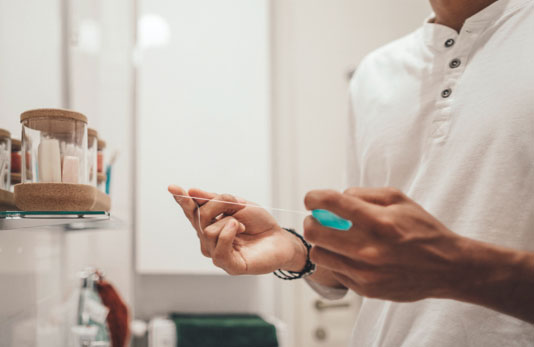Holiday sweets can be tough on teeth

The winter holidays are known for sweet treats and tempting goodies, but that doesn't mean that you have to end up at the dentist with cavities in January.
How do sweet foods cause cavities?
When you eat sugary foods, naturally occurring bacteria in your mouth feed on the sugar and create acids as a byproduct. These acids then wear down your tooth enamel, making it weaker and more susceptible to tooth decay as well as a host of other problems, including gingivitis.
Snacking on sweets throughout the day or during an extended period of time is especially harmful, since damaging acids form in your mouth every time you eat a sugary snack.
5 tips to stay cavity-free
Keep cavity-causing bacteria in check by adding these strategies to your holiday routine.
- Balance out your sweets with other foods. Eating sugary and carb-rich foods as part of a balanced meal can lessen their impact on your teeth.
- Choose sweets that don’t stick around. Instead of sticky foods that get on and in between your teeth, go for items that dissolve quickly, limiting their contact with your enamel. For example, swap out caramels and candy canes with plain dark chocolate.
- Brush afterwards. Always keep a toothbrush to brush away foods and plaque after you eat. If you’re consuming foods or beverages that are high in acid, like oranges and wine, make sure to wait 30 minutes. Acid can soften the enamel, so brushing too soon can actually damage your teeth.
- Stay prepared. You’ll have no excuse to skip brushing and flossing if you always keep a toothbrush, travel tube of toothpaste and container of floss in your bag or car.
- Rinse to refresh. When you can’t brush, rinse your mouth with tap water to wash away food particles and bacteria.
Brush up on your technique
If you're relaxed or have more free time during the day or with your morning or nightly routine, you can use the time to brush more thoroughly and develop better oral care habits.
It isn't necessary to brush vigorously to get your teeth clean. What's important when brushing your teeth is not how hard you scrub, but that you use the proper technique and that you do a thorough job. And that takes time. Dentists recommend that you brush your teeth for two to three minutes to get the most thorough cleaning.
Once you get into the habit of brushing for two to three minutes every morning, every night and after every meal during the holidays, it’ll be easier keep those good habits when your regular routine resumes.
Last updated October, 2021
Related articles:
The oral health information on this website is intended for educational purposes only. Always consult a licensed dentist or other qualified health care professional for any questions concerning your oral health.



